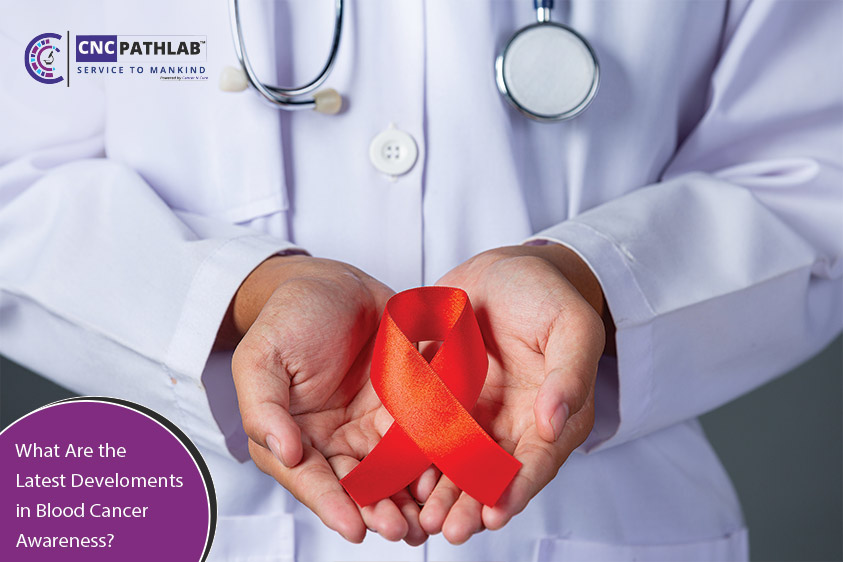A Comprehensive Guide to Essential Blood Tests
A Comprehensive Guide to Essential Blood Tests
What are essential blood tests?
Essential blood tests are those done to check for overall health and detect any potential issues. The most common tests involve looking at the levels of various substances in the blood, such as cholesterol, lipids, and thyroid-stimulating hormone. Additionally, they can include tests to evaluate liver, kidney, and blood cell function.
Complete Blood Count (CBC) – This test measures the number of red blood cells, white blood cells, and platelets in your blood. It is used to diagnose infections and anemia, as well as detect abnormal cells.
Basic Metabolic Panel (BMP) – This test measures the levels of electrolytes, kidney function, blood sugar, and calcium in your blood. It is used to assess overall health and detect the presence of any medical conditions.
Lipid Panel – This test measures the levels of fats, such as cholesterol and triglycerides, in your blood. It is used to assess your risk of developing heart disease.
Thyroid Panel – This test measures the levels of two hormones released by the thyroid gland: thyroxine (T4) and triiodothyronine (T3). It is used to diagnose thyroid disorders.
Vitamin B12 and Vitamin D Tests – These tests measure the levels of vitamins B12 and D in your blood. Vitamin B12 is important for the production of red blood cells and vitamin D is important for bone health.
Iron/Ferritin Test – This
What do essential blood tests check for?
Essential blood tests are used to assess many aspects of our health, including our hormones, organs, and blood cells. These tests can help identify any underlying health conditions, as well as monitor the progress of existing ones.
Common essential blood tests include:
Cholesterol and Lipid Panel: This test measures the levels of lipids (fats) such as cholesterol and triglycerides in your blood. These tests are used to check for high cholesterol, which can be a risk factor for heart disease.
Liver Function Tests: These tests check the health of your liver, which is responsible for processing food, medicines, and alcohol. They measure the levels of proteins, enzymes, and other substances in your blood that are produced by the liver.
CRP and Vitamin D: C-reactive protein (CRP) is a marker for inflammation in the body. Vitamin D is an important vitamin for bone health, and its levels can be measured with a blood test.
Kidney Function Tests: These tests check how well your kidneys are working. They measure the levels of creatinine, potassium, and other substances in your blood that are produced and filtered by the kidneys.
Complete Blood Count (CBC): This test measures the number and types of red and white blood cells, as well as hemoglobin, in your blood. It is used to evaluate your overall health and detect any abnormalities in your blood.
Vitamin B12 and TSH
How often should essential blood tests be done?
Essential blood tests are vital to maintaining good health and wellness. It’s important to get regular check-ups and get tested for various markers in your blood that can indicate potential health problems. The frequency of these tests will depend on your age, lifestyle, and overall health.
Some of the most common blood tests include cholesterol, liver function, lipid and CRP tests, vitamin D, kidney function, and complete blood count (CBC). A CBC is a full blood count that involves analyzing the number and types of cells in your blood. It is usually done once a year or every few months, depending on your health history.
Other tests that you may need to have done include tests for vitamin B12, thyroid stimulating hormone, iron/ferritin, basic metabolic panel, hemoglobin A1C, CMP, and phlebotomy. A full blood count (FBC) can be done more frequently in certain cases. A thyroid panel is also recommended every few years.
Overall, it is recommended that you get your essential blood tests done at least once a year. A more comprehensive set of tests should be done every few years. It is also important to talk to your doctor if you have any concerns or think that you need to get tested for something specific.
What can essential blood tests reveal about my health?
Essential blood tests can tell you a lot about your health. From assessing your cholesterol and liver function to measuring the amount of vitamin D in your system, blood tests can provide valuable insights into your overall well-being.
Cholesterol tests can measure the levels of “good” and “bad” cholesterol in your blood. These tests can help in the diagnosis of conditions such as heart disease, stroke, and diabetes.
Liver function tests, also known as LFTs, can help determine the health of your liver and can be used to diagnose and monitor a variety of liver diseases.
Lipid tests measure the levels of lipids, or fats, in your blood. High levels of certain lipids can be a sign of a higher risk of heart disease and stroke.
CRP tests measure the levels of C-reactive protein, a marker for inflammation. High levels of CRP indicate that there is inflammation in the body and can be used to diagnose autoimmune diseases and other chronic conditions.
Vitamin D tests measure the amount of vitamin D in your system. Vitamin D is essential for a healthy immune system and for the absorption of calcium.
Kidney function tests measure the levels of certain substances in your blood that can indicate how well your kidneys are functioning. These tests can be used to diagnose and monitor kidney disease.
A complete blood count (CBC) is a test that measures
Are essential blood tests painful?
No, essential blood tests are not painful. While some people may experience a slight pinch with a needle prick from the phlebotomy process, the tests themselves are typically painless.
Essential blood tests are used to measure the levels of certain substances in the body, such as cholesterol, lipids, vitamins, and hormones. These tests can provide important information about the functioning of your organs, such as your liver and kidneys, as well as your complete blood count (CBC), vitamin B12, thyroid stimulating hormone, iron/ferritin, basic metabolic panel, hemoglobin A1C, and CMP.
It is important to note that some essential blood tests may require more than one draw. For example, a full blood count (FBC) may require several blood samples to get an accurate measure of your levels. Additionally, a thyroid panel may require several different blood draws to get the most accurate results.
In some cases, a healthcare provider may order additional tests that are not essential but may be beneficial to your overall health. This can include tests such as a lipid panel or a Vitamin D test.
Overall, essential blood tests are generally quick and painless and provide important information about your health.
Are there any risks associated with essential blood tests?
Yes, there are risks associated with essential blood tests. While most blood tests are safe, some tests may involve inserting a needle into a vein or taking a larger quantity of blood than is typical with routine tests. This is known as a phlebotomy and can cause some discomfort. Additionally, there are certain tests (such as a complete blood count, a lipid profile, a thyroid panel, and a vitamin B12 test) that may involve taking a small quantity of blood, which could result in a slight risk of infection.
Moreover, some tests (such as a basic metabolic panel, a liver function test, and a C-reactive protein test) may cause a mild increase in blood pressure, nausea, or lightheadedness. However, these risks are usually minor and can be minimized with proper pre-test preparation and close monitoring by medical professionals.
Finally, some tests (such as a hemoglobin A1C, an iron/ferritin test, and a thyroid stimulating hormone test) may require fasting prior to the test. Fasting may be uncomfortable and can lead to weakness, dizziness, and dehydration. It is important to follow your doctor's instructions when undergoing any test and to ask any questions or voice any concerns you may have.
What should I do to prepare for essential blood tests?
Before undergoing any essential blood tests, it's important to be well prepared. Here are some tips to help you get ready:
- Discuss with your doctor what tests are necessary. Depending on the types of tests you need, your doctor may have specific instructions for you.
- Ask your doctor about any dietary restrictions you should follow prior to the test. For example, if you are getting a lipid panel done, you may need to fast for 8-12 hours beforehand.
- Talk to your doctor about any medications you should avoid taking before the test. Certain medications can interfere with the results of a test, so it’s important to know what you should and shouldn’t take.
- Have a full understanding of what the blood test is for. Common tests include cholesterol tests, liver function tests, lipid panels, CRP (C-reactive protein) tests, vitamin D tests, kidney function tests, and complete blood counts (CBCs).
- Ask your doctor about other tests you may need. Tests like vitamin B12, thyroid stimulating hormone, full blood counts (FBCs), thyroid panels, iron/ferritin, basic metabolic panels, hemoglobin A1C, complete metabolic panels (CMPS), and phlebotomy may also be ordered by your doctor.
- Make sure to drink plenty of fluids before the test. This will help to ensure that your v
How long does it take to get the results of essential blood tests?
The amount of time it takes to get the results of essential blood tests can vary. Generally, it takes a few days to a week to get the results from a routine blood test. For example, a full blood count (FBC) or a complete blood count (CBC) may take a few days, while a liver function test, lipid profile, thyroid stimulating hormone (TSH) or vitamin D test may take up to a week. More complex tests, such as a thyroid test can take longer, while a basic metabolic panel (BMP), hemoglobin A1C, or a comprehensive metabolic panel (CMP) may take up to two weeks.
The amount of time it takes to get test results depends on the type of test being done, the facility performing the test and how quickly the lab is able to process the sample. In addition, the amount of time it takes for the sample to reach the lab from the facility where the phlebotomy was done (such as a hospital or clinic) can also affect the turnaround time. As such, it's best to check with the facility conducting the test for their estimated turnaround time.
What can I do to ensure accurate results of my essential blood tests?
Having accurate results from essential blood tests such as a cholesterol test, liver function tests, lipid panel, CRP (C-reactive protein) test, vitamin D testing, kidney function test, complete blood count (CBC), vitamin B12 test, thyroid stimulating hormone test (TSH), full blood count (FBC), thyroid panel, iron/ferritin test, basic metabolic panel (BMP), hemoglobin A1C test, comprehensive metabolic panel (CMP) and phlebotomy (FBC) is critical for your health. There are a few steps you can take to ensure that your blood test yields the most accurate results.
First, it is important to follow any instructions provided by the doctor or the laboratory technician prior to the test. These instructions can involve fasting or altering your regular diet or medications.
Second, make sure to provide a detailed medical history to the doctor or laboratory technician. This includes information about any existing medical conditions, as well as any medications or supplements you take on a regular basis.
Third, it is best to schedule the blood test at a time when you can be relaxed. Anxiety or stress can affect the results of some blood tests, so if possible, plan the test when you are feeling calm and relaxed.
Finally, make sure to follow post-test instructions. These may include a list of foods to avoid or medications you should continue taking to make sure the results are as accurate as possible.
What should I do if my essential blood test results are abnormal?
If your essential blood test results are abnormal, it’s important to speak to your healthcare provider for further evaluation and guidance. It’s also important to understand what abnormal results mean and how they can affect your health. Depending on your individual condition, your healthcare provider may recommend additional tests or treatments.
Essential blood tests measure a variety of components of your blood, such as cholesterol, lipids, liver and kidney functions, blood cells, vitamin D and B12, thyroid stimulating hormone, and iron/ferritin. Some of these tests may be part of a complete blood count (CBC), full blood count (FBC), thyroid panel, basic metabolic panel, hemoglobin A1C, and comprehensive metabolic panel (CMP). In some cases, phlebotomy may also be necessary.
Your healthcare provider will discuss the abnormal results with you and recommend any necessary treatments. It’s important to follow their instructions and to make any necessary lifestyle changes to ensure your health is properly managed.


.jpg)


.jpg)
